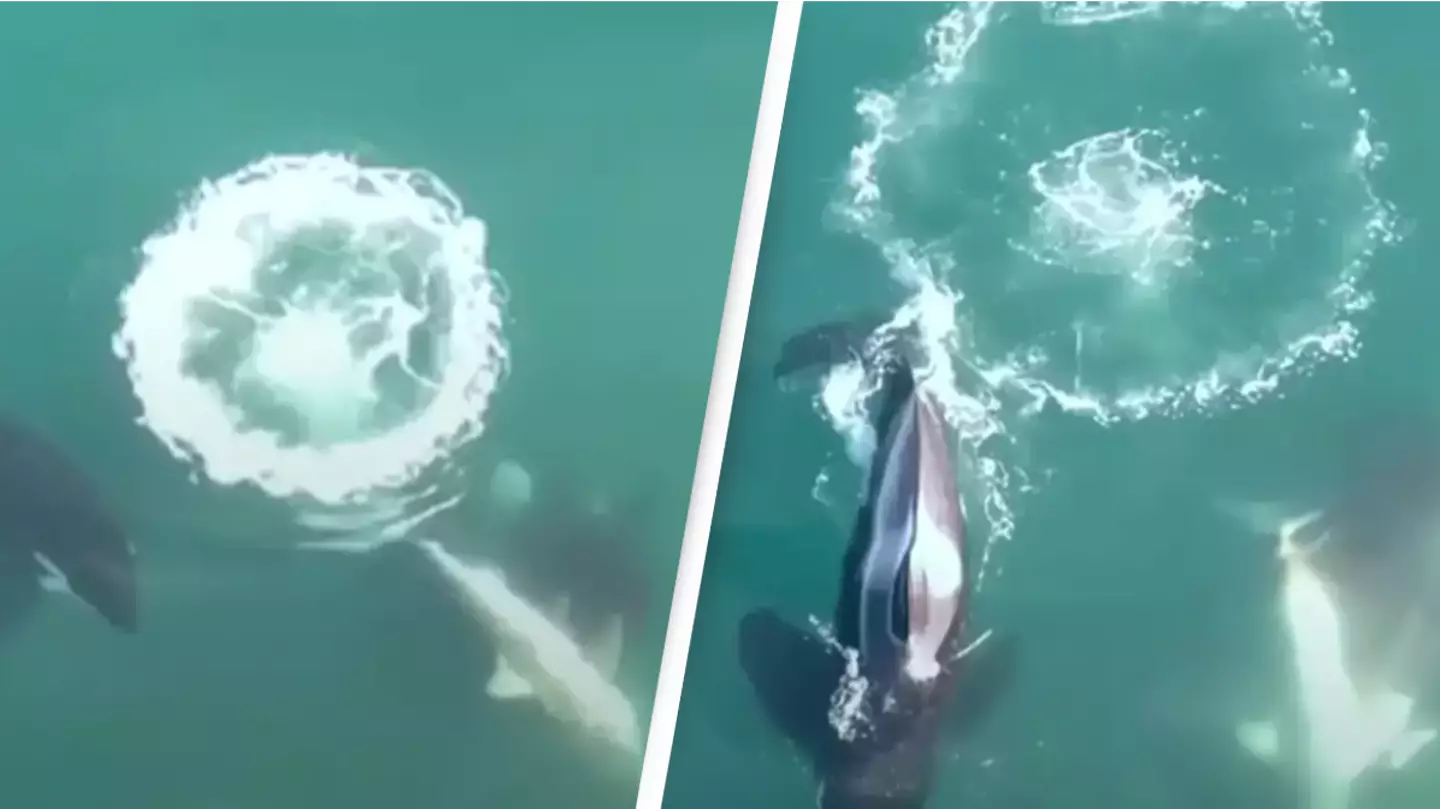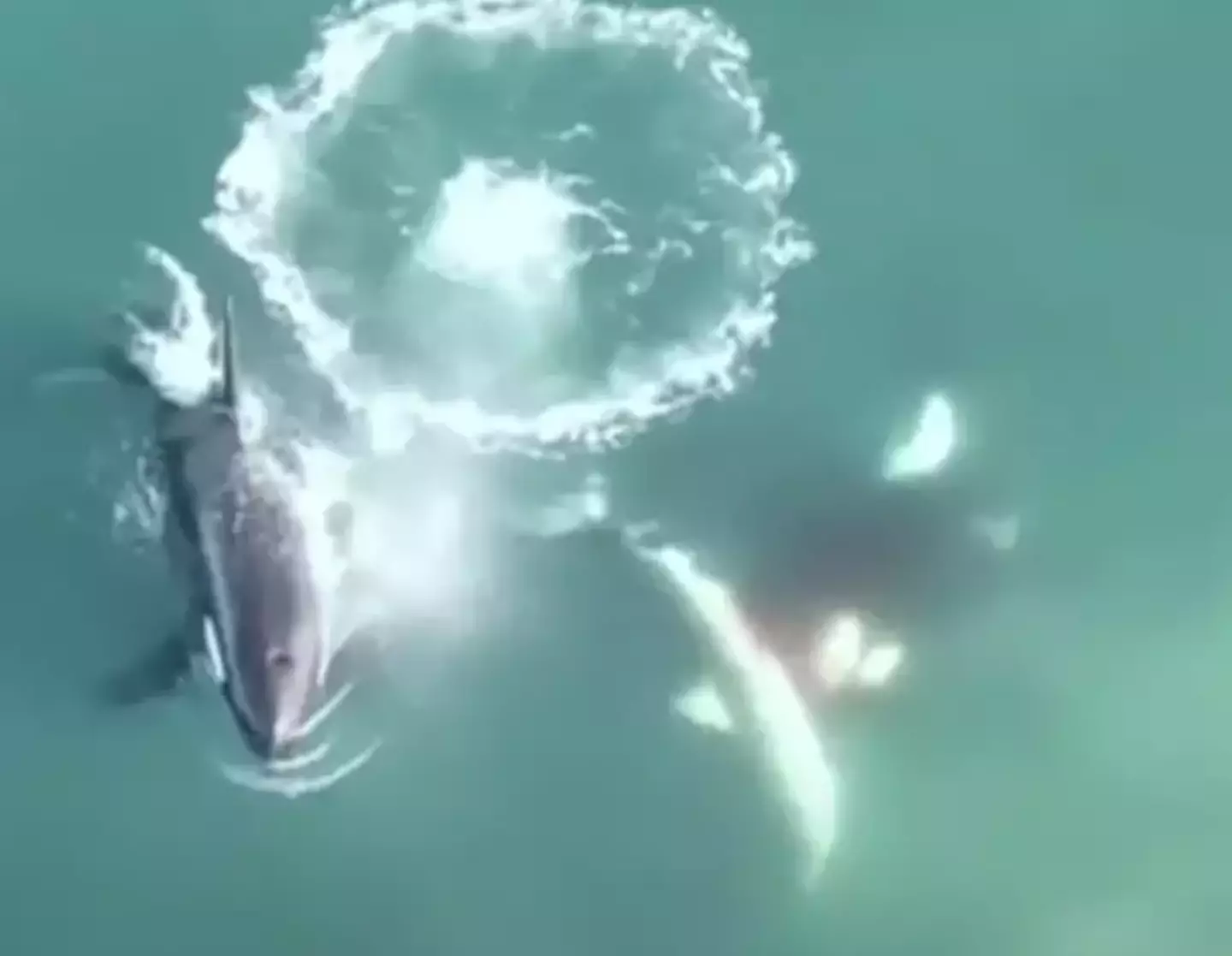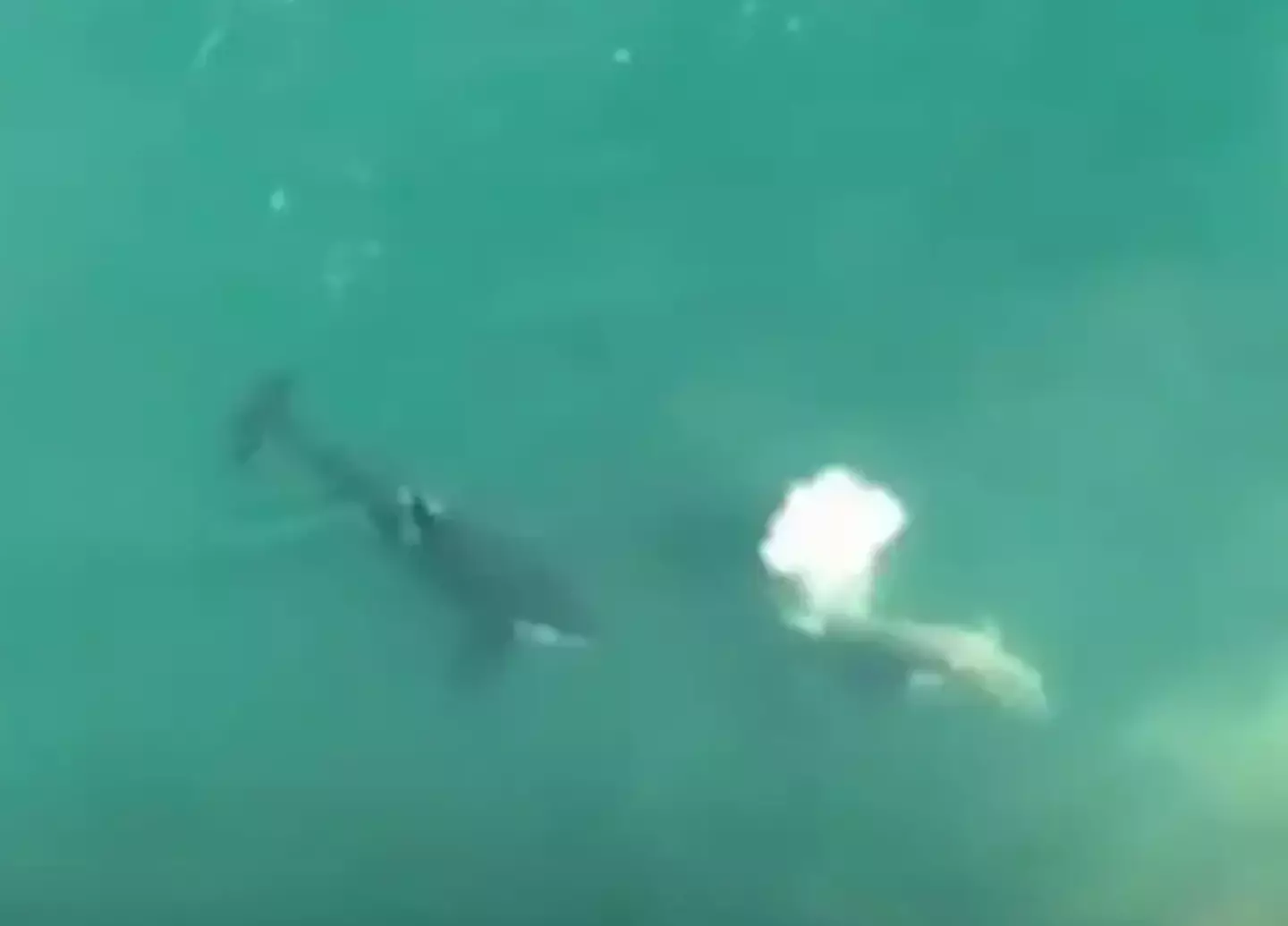
The world's first aerial footage of killer whales hunting and killing great white sharks offers up a chilling insight to the brutal reality of nature.
If David Attenborough's documentaries have taught us anything, it's that nature is cruel.
It's heartbreaking to see smaller animals fall victim to prey, but you generally wouldn't consider a great white shark to be the animal you're feeling sorry for - especially not at the hand - or fin - of an Orca.
Advert
I mean, we've all seen how sad Orcas look cooped up at aqua parks, haven't we?
Out in the wild, though, the creatures have to hunt for their food like any other predator, and the footage caught in South Africa reveals what it looks like when great whites end up in the firing line.
A team of scientists used a helicopter and a drone to capture the first ever aerial footage of orcas hunting and killing great white sharks in May 2022, when a pod of orcas embarked on an hour-long killing spree.
The footage was submitted as part of a paper published in The Ecological Society of America's journal Ecology, offering insight into the clashes between the two major marine predators.

Alison Towner, a senior shark scientist at Marine Dynamics Academy in Gansbaai, South Africa, and lead author on the study, explained that while marine biologists have long known that killer whales can attack great whites, it had never before been caught on camera.
"This behaviour has never been witnessed in detail before, and certainly never from the air," said Towner said.
Only two killer whales in South Africa had been previously linked to hunting great whites, and only one of those was observed in the footage, along with four other killer whales.
On two occasions during the filming, orcas approached sharks closely and slowly, but rather than fleeing, the shark stayed close to the orca and kept it in view – a common strategy that seals and turtles use to evade sharks.
However, researchers believe it might not be effective for sharks to use the method in this situation as orcas hunt in groups.

The study confirmed that one infamous killer whale - locally known as Starboard - was part of the pod and ate what was suspected to be a large piece of shark liver at the ocean surface.
The footage also revealed how another killer whale bit into a white shark at the region of the liver.
David Hurwitz, a boat-based whale-watching operator from Simon's Town Boat Company, had previously witnessed Starboard and another whale kill a copper shark, but said: "This new observation is really something else."
The new study also analysed drone and cage dive boat survey data before and after these predation events, and found that, while multiple sharks were seen on the day of the predations, only a single white shark was seen in the 45 days afterwards, confirming a flight response by sharks.